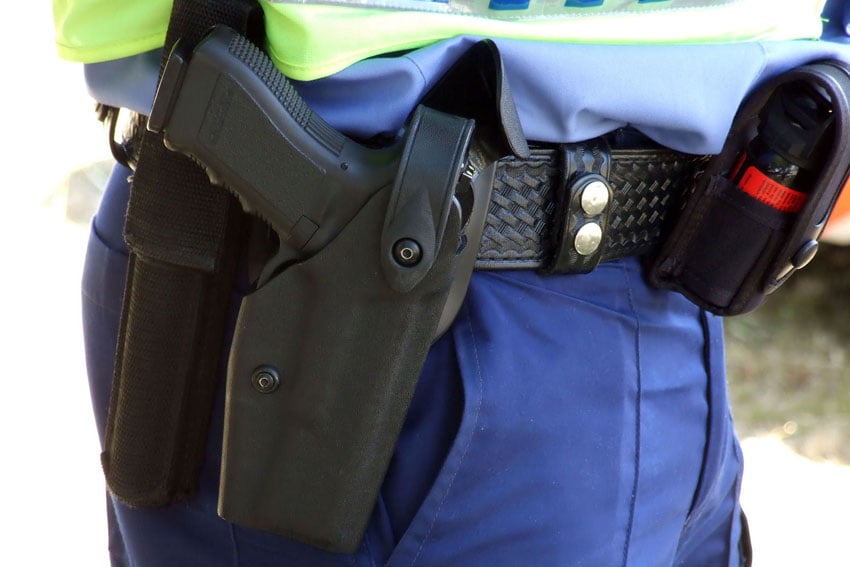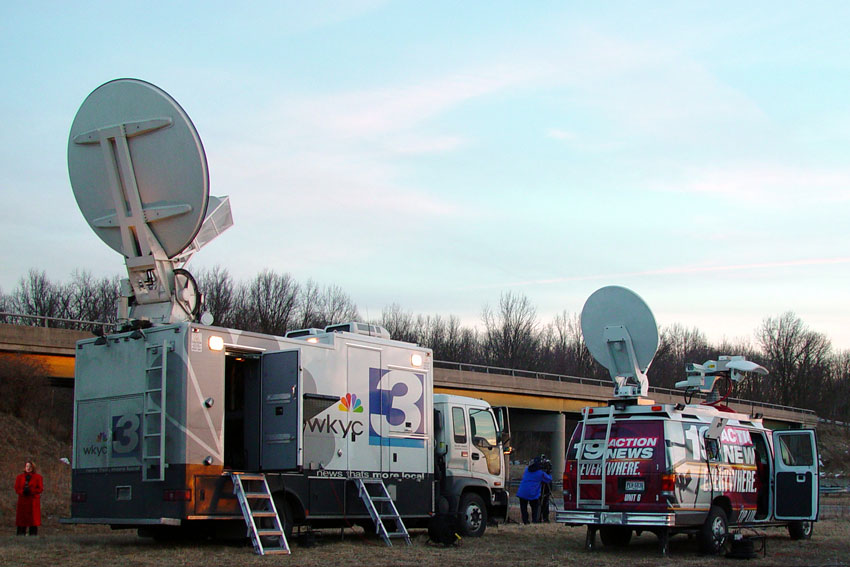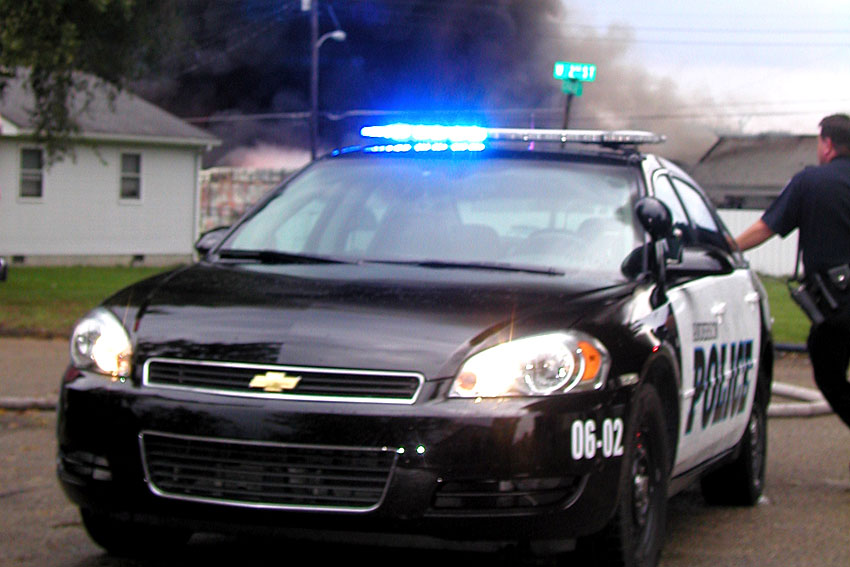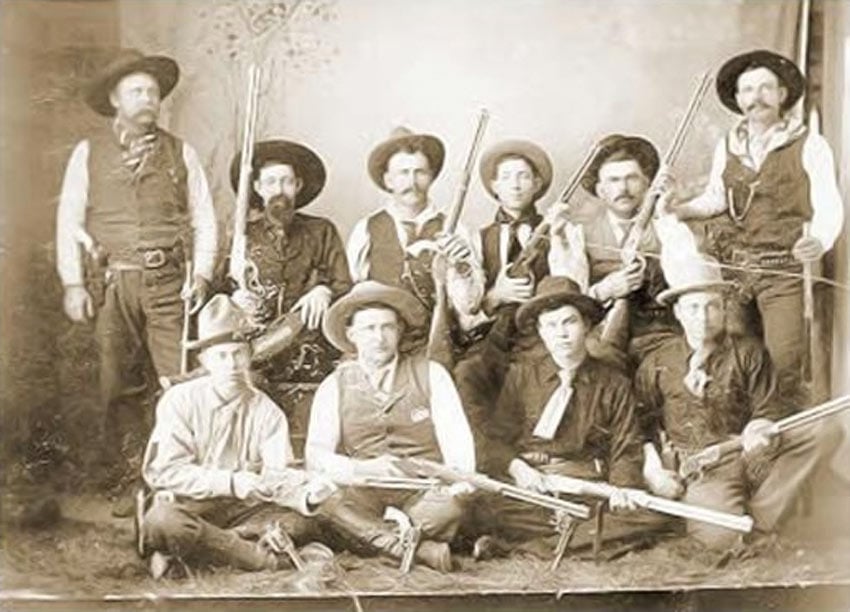The Whole Story: Law Enforcement’s Difficult Task of Gathering the “Truth”
The Whole Story: Law Enforcement’s Difficult Task of Gathering the “Truth”

As a former Law Enforcement Officer, I can tell you that traditional media and social media are the absolute worst ways to gather information about anything. Especially during an active emergency situation or investigation. An analogy I would often use to explain my job as an Officer was that I was just a reporter with a gun, that could also take you to jail. I rarely reported the exact truth when conducting an investigation, as there’s almost no way to do so. I can already hear some of my old cop buddies gasping, but this is an accurate statement, so hear me out.
When a Police Officer or Sheriff’s Deputy arrives on a scene, they’re usually arriving after the fact. They must gather separate versions of the “truth.” What I mean by this is that different versions of a story will nearly always be told. The Officer/Deputy will first speak to the reporting party, usually the victim.
The victim is just that, one who’s been victimized. They’re upset and usually angry; they’ve been done wrong and want whoever did them wrong to be located, arrested and punished. They’ll shape the story into how they feel it happened and usually shape it to make the suspect look as guilty as possible. This is usually the first version of the “truth.”

The second version we seek and collect is that of the suspect. This is almost always a very different version than was given by the victim. The suspect will try and deny or justify their actions to the victim. At times, even more of the “truth” is afforded to the Officer/Deputy by witnesses. The witnesses’ “truth” varies depending on whether their loyalty is with the victim or the suspect and on some occasions, it’s neither. Most often, even if their loyalty is with the victim or suspect, their version of the “truth” will be slightly different.
On rare occasions, there’s only one witness who saw what happened; only one person to give the Officer/Deputy an account of what happened. If this witness isn’t the victim or the suspect, it’s usually an accurate report. This can also cause problems for the sole witness, as there’s no one else to give their version; no victim, no suspect, they’re all alone. They can often be labeled as a suspect very quickly by individuals not involved with the situation.
In addition to reports, the Officer/Deputy is also collecting any physical evidence. Many times, this shows a different version of the “truth” that’s been reported by all parties. If not altered or tampered with, it’s usually the most accurate.
With all of this, the Officer/Deputy collects and records what I call “the best version of the Truth” they’re able to come up with. Are there mistakes in LE reports? Absolutely! Are mistakes put there on purpose? Absolutely not. Most Officers go out and do the very best they can with what they’ve been given.
The Media

If the situation is serious in nature, the media usually gets involved. If it’s bad enough, they’ll usually start trying to gather their own version of the story while the investigation is still ongoing. Everyone knows it’s standard procedure for the investigating Law Enforcement Agency not to comment, or release much information while an investigation is still active.
For this reason, the media will speak to anyone who claims to be a witness and again, different versions of the “truth” are tossed into the already cluttered, cloudy and ever dissolving truth. After the regular news media outlets, social media will usually pick it up. Here’s where the official “keyboard experts” come out of the woodwork. These are usually people who’ve never worked in Law Enforcement, but haven’t missed an episode of CSI.
They’re quick to let all the world know that Law Enforcement is doing a terrible job and to inform us all how it should be done. They also usually know someone who was there, but when pressed can never name that someone. They’ll offer their version of the “truth” that usually ends up being the absolute furthest thing from what actually happened. These complete and utter jackwagons are the ones that cause the most damage, spreading false information for all to see.

When asked for my thoughts on a situation, crime or Officer involved incident, my response is usually the same, “I wasn’t there when it happened, so I can’t comment or draw a conclusion.” I’ll especially refrain from commenting when it’s a use of force situation. No one knows, except the Officer(s) involved, exactly what happened. It’s not our business to cast judgment or say, “Well if it was me, I would’ve done it like this or that. I would’ve used a whiffle ball bat. Blah, blah, blah.”
This is the worse thing to say or put out for others to read. You can’t say what you would do because you weren’t there and you didn’t experience the pain, fear and thoughts of never seeing your loved ones again. Usually the people saying these type of things would tuck tail and run the other way if put in a life-threatening situation.
I hope reading this helps some people stop, think and not cast judgment the next time they’re reading what some “keyboard expert” has informed all of Facebook about. It’s usually according to a friend of their cousin, barber, mechanic’s second cousin or pool cleaner’s mother, anyhow. Keep in mind that the media also relies on ratings and can make situations seem more dramatic than they are.
It’s best to keep calm and let the people who are doing what they get paid to do finish their job. “The best version of the truth,” will be put forward to the court for a judge or jury to decide what actually happened. Many times, this is where the “truth” really gets twisted! But we can save that topic for the future.
I believe in practicing what you preach, so my company, BCPK9, offers our assistance to any Law Enforcement agency that contacts us and requests help. When asked how much we charge to come work our dogs, our reply is always the same, nothing. However, if it’s far from our area a donation is encouraged to cover fuel/meal expenses. If you have any questions about this or any K9 training, you can reach me at [email protected]
Editor-in-Chief’s Note: Please join us in welcoming Mark Wynn as a contributor on ITS. Mark is an instructor with Boulder Creek Performance K9 and has worked and trained in all areas of Police Service Dog, Military/Contract Working Dog, Search & Rescue and Sport Mark served as a Kennel Master and Trainer in both Iraq and Afghanistan and Jordan (At the King Abdullah Special Operations Training Center) supporting the United States Department of State and Department of Defense fighting the war on terror. While in Iraq, Mark was the Senior Kennel Master for the world’s largest K9 Contract managing 103 Explosive Dogs at the Baghdad Embassy.











Discussion